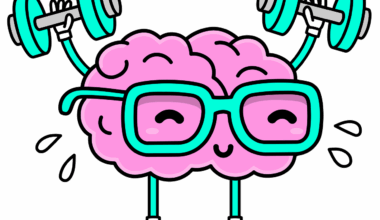Rest and Recovery in Senior Bodyweight Strength Training
For seniors engaging in bodyweight strength training, the significance of rest and recovery cannot be overstated. As individuals age, their bodies may experience slower recovery times, making adequate rest a crucial component of any exercise regimen. Recovery allows muscles to heal, grow, and adapt, leading to overall strength improvement. This process can result in enhanced fitness, reduced risk of injury, and improved overall well-being. Furthermore, acknowledging the unique physiological changes that occur as we age allows seniors to tailor their training to their capabilities. Understanding the importance of rest days enables seniors to maximize the benefits of their workouts, enhancing their endurance and performance during training sessions. Integrating soreness management techniques, such as gentle stretching or mobility exercises, can help alleviate discomfort. Recognizing signs of fatigue, such as decreased motivation or persistent soreness, is essential. Therefore, seniors should not only plan their workouts but also prioritize rest days in their schedules, making adjustments based on their individual responses to exercise to ensure a sustainable approach to fitness.
Importance of Active Recovery
In addition to scheduled rest days, active recovery plays a vital role in the fitness journey of senior individuals. Unlike complete rest, active recovery involves low-intensity activities that promote blood flow and muscle healing without overexertion. Simple activities, such as walking, light yoga, or gentle swimming, can effectively facilitate recovery while keeping seniors engaged. These movements help alleviate muscle stiffness and improve flexibility, contributing to better overall functional fitness. Moreover, incorporating active recovery days can reduce the likelihood of fatigue, enhance mood, and encourage a sense of accomplishment. Important considerations during these sessions include staying hydrated and listening to the body’s signals. Engaging in activities that seniors enjoy not only aids recovery but also promotes a positive mindset towards fitness. It is crucial to recognize that each individual’s recovery process is unique; therefore, finding the right balance of activity and rest is essential. Seniors may benefit from consulting fitness professionals who can create tailored active recovery routines suited to their individual needs. Ultimately, embracing active recovery can be key in maintaining a consistent strength training program.
Nutrition plays an essential role in the recovery process for seniors participating in bodyweight strength training. As they work out, seniors deplete their energy stores, and the body requires adequate nutrition to refuel and repair muscle tissue. A balanced diet rich in protein, healthy fats, and carbohydrates is vital for optimal recovery. Protein, in particular, is essential for muscle rebuilding, and seniors should aim to incorporate sources like lean meats, eggs, legumes, and dairy into their meals. Additionally, consuming carbohydrates helps replenish energy levels, supporting overall workout capacity. Staying well-hydrated is critical as well since dehydration can impair recovery and performance. Seniors may benefit from discussing their nutritional needs with a registered dietitian specializing in senior health. This can ensure they are consuming meals that support their training regimen and recovery phases effectively. Supplements can also be considered, though they should complement a balanced diet rather than replace it. Emphasizing the importance of nutritious eating in conjunction with exercise routines is key. A dedicated focus on nutrition will ultimately lead to better performance and an improved quality of life for seniors.
Listening to Your Body
One of the most critical aspects of rest and recovery in senior bodyweight strength training is the ability to listen to one’s body. As seniors age, the signals their bodies send become more nuanced. Understanding these signals can provide invaluable insights into personal limits and needs during workouts and recovery phases. Warning signs such as increased soreness, fatigue, or lethargy indicate a need for rest or a reduction in exercise intensity. It’s essential for seniors to differentiate between normal post-exercise discomfort and pain indicating potential injury or excessive strain. Recognizing the need for adjustments or modifications in exercise routines can help prevent setbacks. Incorporating a journaling practice to track workouts, feelings, energy levels, and recovery can provide clarity and insight into personal patterns. This information can guide future training sessions, helping seniors to make informed choices about rest and activity levels. By honoring these signals and adapting accordingly, seniors can foster a long-lasting and enjoyable fitness journey. Building a practice of listening to the body establishes a sustainable and healthy mindset towards fitness.
Planning structured workouts contributes significantly to effective recovery in bodyweight strength training for seniors. Having a well-thought-out exercise schedule creates a fluid balance between exertion and recovery, minimizing risks of injury and fatigue. A good plan should incorporate various training modalities, including strength, flexibility, and cardiovascular activities. Alternating between high-intensity strength workouts and lower-intensity days serves to prevent overtraining, while integrating mobility and stretching exercises can foster better recovery. It’s beneficial for seniors to consult with fitness professionals who can design personalized workout regimens that match their individual goals and capabilities. This structured approach allows seniors to progressively increase intensity without overwhelming their bodies. As a result, they experience a consistent strength development while maintaining the ability to recover effectively. Additionally, utilizing tools like workout calendars can help seniors visualize their progress. This practice not only enhances accountability but also motivates them to stick with their routines. Overall, a strategic approach to training ensures seniors can safely and effectively engage in bodyweight strength routines while reaping lasting physical benefits.
The Role of Mental Recovery
Mental recovery is just as important as physical recovery in bodyweight strength training for seniors. Engaging in strenuous physical activities can be taxing not only on the body but also on mental health. Stress and anxiety can negatively impact performance and recovery, creating a vicious cycle that can deter seniors from maintaining their fitness routines. Therefore, incorporating mental recovery strategies, such as mindfulness, meditation, or gentle yoga, can be profoundly beneficial. These practices contribute to relaxation and stress reduction, enhancing overall well-being. In addition, adopting positive self-talk and visualization techniques can strengthen motivation and resilience in facing challenges during recovery. Furthermore, connecting with a community of like-minded individuals can build a strong support system, providing encouragement and fostering a sense of belonging. Seniors may consider joining local exercise groups or engage in online forums dedicated to seniors’ fitness. Creating opportunities for social interaction while prioritizing mental recovery can significantly improve the overall experience of bodyweight strength training. Emphasizing mental well-being alongside physical training allows seniors to cultivate a more holistic approach to fitness.
Ultimately, embracing a comprehensive approach to rest and recovery is essential for seniors pursuing bodyweight strength training. Monitoring and adjusting physical, nutritional, and mental elements can create a balanced routine that serves individual needs. Staying aware of personal limits and understanding the importance of prioritizing rest days, engaging in active recovery, and focusing on nutrition empowers seniors to achieve their strength goals. Additionally, being mindful of mental health and connecting with supportive communities can enrich the fitness experience. With a well-rounded strategy, seniors can foster long-term health benefits, improve overall quality of life, and maintain a sustainable approach to fitness. This adaptability allows them to continue enjoying the physical activities they love while minimizing the risks of injury or burnout. Ultimately, cultivating a personal philosophy centered around rest, recovery, and enjoyment within bodyweight strength training promotes longevity in fitness endeavors. While challenges may arise during this journey, seniors equipped with these strategies can navigate them effectively, leading to fulfilling and enriching experiences in strength training as they age.
Conclusion
In conclusion, it is vital for seniors participating in bodyweight strength training to recognize the key role that rest and recovery play in their fitness journey. Aging poses unique challenges that may affect recovery times and overall performance. However, by actively embracing various recovery strategies—such as incorporating balanced nutrition, engaging in active recovery, and adjusting workouts based on personal signals—seniors can enhance their overall fitness and well-being. Furthermore, the importance of mental health and creating supportive social networks adds significant value to the recovery process. By recognizing and implementing these essential components, seniors foster sustainable habits that help them thrive in their fitness endeavors. Emphasizing a holistic approach based on these concepts can drastically improve recovery outcomes, ensuring that seniors remain active and engaged in their preferred physical activities for years to come. Thus, prioritizing rest and recovery allows seniors to maintain their independence, build resilience, and explore their capabilities within health and fitness. With dedication and the right mindset, seniors can safely pursue bodyweight strength training as a rewarding lifelong endeavor.


